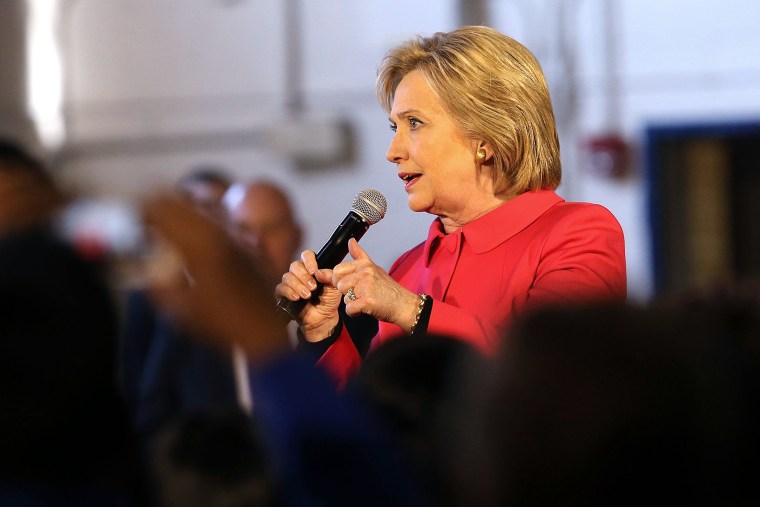During the fight to pass health care reform in 2009 and 2010, one of the most notable aspects of President Obama's plan was something known as the "public option." The idea, which was quite popular, was to create a public, non-profit health insurer that would compete with private insurance companies for consumers' business, along the lines of the educational model in which public and private universities compete in the same space.
The policy was poised to be part of the Affordable Care Act, but it was ultimately killed by one man, then-Sen. Joe Lieberman, who vowed to join a Republican filibuster and destroy the entire reform effort if the public option was included in the final package. Left with no choice, reform advocates relented.
But the measure's demise six years ago need not be permanent. Yesterday, in a bit of a surprise, the public option picked up an unexpected proponent: Hillary Clinton. Politico reported:
Clinton's campaign has updated its website to note her continued support for the government-run health plan that was dropped from Obamacare during the law's drafting. [...] A new version of Clinton's campaign website suggests she won't try to push the public option through Congress, but instead will work with governors using existing flexibility under Obamacare "to empower states to establish a public option choice." That may be a reference to a waiver program taking effect in 2017 that lets states assert greater control over their health care systems.
It's worth noting for context that this doesn't come as a complete surprise. For example, Clinton supported a public option as a candidate in 2008, though she's said little about the policy since. Her press secretary, Brian Fallon, expressed support for a public option during an interview with MSNBC's Chris Hayes in January, but the campaign's official position on health care wasn't changed until yesterday.
For progressives, it's an important step. In fact, the closer one looks at the circumstances, the more encouraging they appear: Clinton just won the Nevada caucuses, she's likely to win the South Carolina primary, and one might expect her to feel less pressure, not more, about appealing to voters on the left. Clinton is probably feeling more confident about her chances now than at any point in quite a while.
In other words, her support for the public option isn't some kind of desperation move, made in haste in the hopes of winning over progressive skeptics; it's largely the opposite.
Postscript: I'm very much inclined to give The New Republic's Brian Beutler credit for keeping this issue alive, by the way. Brian published a good piece in mid-January, making the case for the public option, not only on the policy merits, but also as a political winner in a Democratic nominating contest. His commentary appears quite prescient now.
